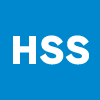Hospital for Special Surgery Offers Sports Emergency Curriculum for Volunteer Health Professionals at the Olympics
New York, NY—July 27, 2016
The elite athletes participating in the 2016 Olympics are in peak physical condition and have the highest degree of training, yet injuries can occur, and the right diagnosis and treatment are critical. With that in mind, Hospital for Special Surgery (HSS) has developed a Sports Emergency Curriculum for volunteer health personnel at the Olympic Games in Rio de Janeiro.
Five online video courses address a number of topics, including acute medical illness; on-site orthopedic emergencies; athletic injuries occurring on the field; the doping control process; and how to create an emergency action plan. Each offering is 10 to 20 minutes long.
"Elite athletes are susceptible to specific injuries and illnesses in the setting of competition, and the courses aim to present vital information to help clinicians provide appropriate and timely care and safely return Olympic athletes to play," said Scott A. Rodeo, MD, co-chief emeritus of the Sports Medicine Service at HSS and chairman of the Sports Medicine Committee for the United States Olympic Swim Team. Dr. Rodeo came up with the idea for the courses during discussions with Dr. João Grangeiro, the Brazilian physician who is chief medical officer for the 2016 Rio Games.
"As the largest sports medicine department in the U.S., HSS practitioners have extensive experience treating all types of athletes. Our surgeons and physicians cover numerous professional teams, as well as several Olympic sports. Thus, we wanted to share our rich experience and expertise," said Dr. Rodeo.
The overall goal was to provide a broad overview of fundamental sports medicine information, Dr. Rodeo added. At the same time, HSS wanted to develop a curriculum that could be used not just for the Olympics, but for health professionals covering other types of sporting events and treating athletes in their own community.
"The Sports Emergency Curriculum is among the offerings in Hospital for Special Surgery's eAcademy, intended to improve the quality of patient care and enhance safety," said Laura Robbins, DSW, senior vice president, Global & Academic Affairs at HSS. "Although designed with the Olympic volunteers in mind, these courses are free and open to all, and those who participate will receive Continuing Medical Education credit."
Clinicians who could benefit from the curriculum include orthopedists, emergency medicine physicians, sports medicine physicians, primary care doctors, family medicine physicians, general medicine practitioners, physiatrists, physical therapists, athletic trainers, podiatrists, prosthesis specialists, nurses, nurse practitioners and licensed massage therapists, according to Dr. Robbins.
The following topics will be covered:
• Common Medical Issues: Management During Competition Time
• Management of On-Site Orthopedic Emergencies: Lacerations/Open Wounds, Fractures and Joint Dislocations, Maxillofacial Trauma
• Medical Bag Items/Emergency Action Plan
• Doping Control Process and List of Prohibited Medications
• On-Field Management of Athletic Injuries
Hospital for Special Surgery has had a longstanding relationship with the U.S. Olympic Committee. In 2013, HSS was named the first National Medical Center of the USOC's National Medical Network. In this capacity, HSS physicians have seen and treated elite athletes from Team USA.
Anyone who would like more information or is interested in enrolling in the courses is invited to visit https://hss.classroom24-7.com/.
About HSS | Hospital for Special Surgery
HSS is the world’s leading academic medical center focused on musculoskeletal health. At its core is Hospital for Special Surgery, nationally ranked No. 1 in orthopedics for 14 years in a row and No. 2 in rheumatology by U.S.News & World Report (2023-2024). Founded in 1863, the Hospital has one of the lowest infection rates in the country and was the first in New York State to receive Magnet Recognition for Excellence in Nursing Service from the American Nurses Credentialing Center four consecutive times. The global standard total knee replacement was developed at HSS in 1969. An affiliate of Weill Cornell Medical College, HSS has a main campus in New York City and facilities in New Jersey, Connecticut and in the Long Island and Westchester County regions of New York State. In addition, HSS opened a new facility in Florida in early 2020. In 2019, HSS provided care to 151,000 patients and performed more than 35,000 surgical procedures, and people from all 50 U.S. states and 89 countries travelled to receive care at HSS. In addition to patient care, HSS leads the field in research, innovation and education. The HSS Research Institute comprises 20 translational research laboratories, 33 scientists, 10 clinician-scientists, 55 clinical investigators and 245 scientific support staff that drive the HSS research enterprise in the musculoskeletal “ecosystem,” neurology, pain management and rheumatic diseases. The HSS Innovation Institute was formed in 2016 to realize the potential of new drugs, therapeutics and devices. The HSS Education Institute is the world’s leading provider of education on musculoskeletal health, with its online learning platform offering more than 300 courses to more than 30,000 medical professional members worldwide. Through HSS Global Ventures, the institution is collaborating with medical centers and other organizations to advance the quality and value of musculoskeletal care and to make world-class HSS care more widely accessible nationally and internationally.
Need Help Finding a Physician?
+1.877.606.1555
Media Contacts
- Tracy Hickenbottom
- Noelle Carnevale
212.606.1197
mediarelations@hss.edu

